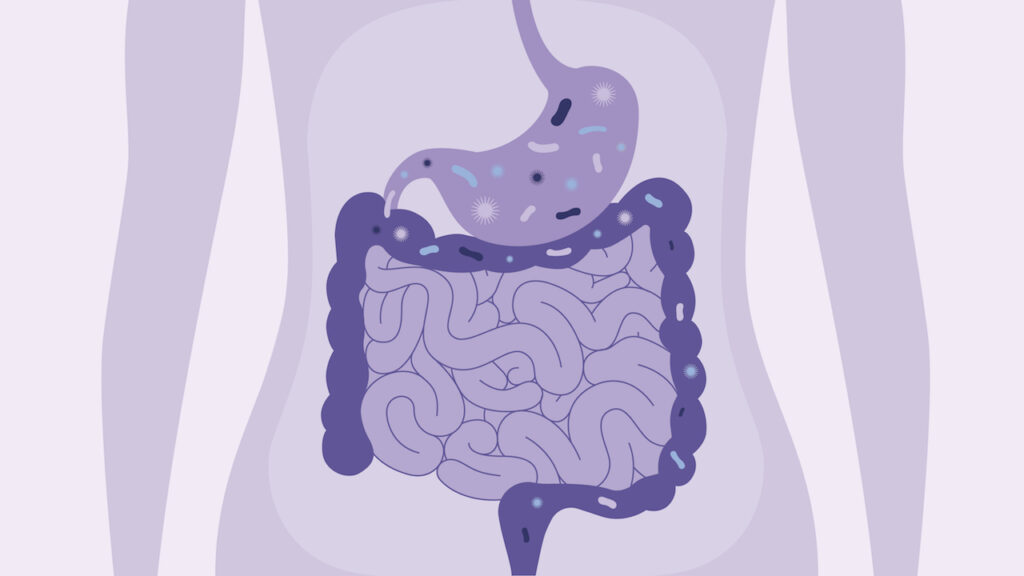Introduction: More Than Just Absorption
Athletes often focus on training, hydration, and protein intake to improve their performance but what if the real game-changer lies in your gut?
Gut health has emerged as a major player in the world of sports performance. Your gut is not just responsible for digestion it regulates inflammation, nutrient absorption, hormone balance, immunity, and even mental resilience. And all of these factors influence how well you train, perform, and recover.
In this blog, we explore the powerful link between gut health and athletic performance, the role of the gut microbiome, common signs of gut imbalances in athletes, and how to fuel your gut for your best performance yet.
What Is Gut Health?
Your gut health refers to the balance and function of the gastrointestinal (GI) system, especially the gut microbiome a community of trillions of bacteria, fungi, and other microbes living in your digestive tract.
When your gut is healthy, you experience:
-
Smooth digestion
-
Stable energy levels
-
Strong immunity
-
Efficient nutrient absorption
-
Low inflammation
But when it’s imbalanced (a condition called dysbiosis), you might struggle with:
-
Bloating, cramps, or irregular bowels
-
Poor energy or fatigue during workouts
-
Slower recovery times
-
Frequent infections or injuries
How Gut Health Impacts Athletic Performance

1. Nutrient Absorption & Energy Metabolism
Your body needs vitamins, minerals, and amino acids to perform well. A healthy gut lining and diverse microbiome:
-
Help break down food efficiently
-
Enhance absorption of iron, magnesium, B12, and other essential nutrients
-
Regulate blood sugar and insulin, helping fuel workouts
👉 Poor gut health = compromised nutrient absorption = low energy + increased fatigue
2. Inflammation Control
Hard training leads to micro-tears in muscles and a spike in inflammation. While some inflammation is part of growth and repair, chronic inflammation delays recovery and increases injury risk.
The gut microbiome helps produce anti-inflammatory compounds like short-chain fatty acids (SCFAs), particularly butyrate, which supports tissue repair and immune regulation.
3. Immune Function & Illness Prevention
Did you know that around 70% of your immune system resides in the gut?
For athletes, immunity is key especially during intense training cycles or competitions.
A disrupted gut barrier (also called “leaky gut”) can trigger frequent colds, respiratory infections, or slow healing all of which hinder consistency and performance.
4. Mental Clarity, Focus & Mood
The gut-brain axis is a two-way communication system between your digestive tract and brain. Good gut health supports:
-
Production of serotonin and dopamine
-
Reduced performance anxiety
-
Better sleep and mood regulation
-
Sharper mental focus during matches or competitions
👉 Gut health affects mental endurance, which is just as critical as physical strength.
Signs Your Gut May Be Sabotaging Your Training
If you’re an active person or athlete experiencing any of the following, your gut may need support:
-
Bloating or heaviness during workouts
-
Muscle fatigue or cramps
-
Poor sleep despite physical exhaustion
-
Frequent colds or skin breakouts
-
Constant sugar cravings
-
Brain fog or low motivation
-
Irregular bowel movements
How to Optimize Gut Health for Athletic Performance
1. Eat Diverse, Fiber-Rich Foods
Fiber feeds your gut microbes and encourages diversity. Aim for 30+ different plant-based foods per week, including:
-
Fruits (banana, apple, berries)
-
Vegetables (carrots, beetroot, spinach)
-
Whole grains (quinoa, oats, brown rice)
-
Legumes (chickpeas, moong, lentils)
-
Seeds and nuts (chia, flax, walnuts)
2. Include Natural Probiotics & Prebiotics
-
Probiotics introduce beneficial bacteria
-
Sources: curd, kefir, fermented vegetables, kanji, kombucha
-
-
Prebiotics feed your good bacteria
-
Sources: garlic, onion, banana, asparagus, oats
-
Consider a sports-friendly probiotic supplement if you’re under heavy training load or recovering from antibiotic use.
3. Stay Hydrated But Smartly
Dehydration impacts gut lining integrity and digestion. Sip water consistently through the day and avoid overloading your gut with large gulps during workouts.
For endurance athletes, electrolyte balance is key to preventing gut-related discomfort.
4. Avoid Common Gut Triggers
Limit:
-
Excessive protein powders with artificial sweeteners
-
Overuse of NSAIDs (painkillers)
-
Refined sugar and processed foods
-
Alcohol and smoking
-
Eating large meals before workouts
5. Practice Mindful Eating
Eat slowly, chew thoroughly, and avoid distractions. This improves enzyme release and reduces the risk of bloating and acid reflux.
6. Get Enough Sleep & Manage Stress
Sleep deprivation and chronic stress directly impair your gut health via the gut-brain axis.
Prioritize:
-
7 – 9 hours of quality sleep
-
Deep breathing, meditation, or nature walks
-
Digital detox post-training
Whether you’re a weekend runner or a competitive athlete, your gut is the foundation of your performance. By supporting your digestive health, you’re not just improving your digestion you’re fuelling your stamina, resilience, and long-term success.
Remember: Train hard. Fuel smart. Heal deeper. Your gut has your back.


